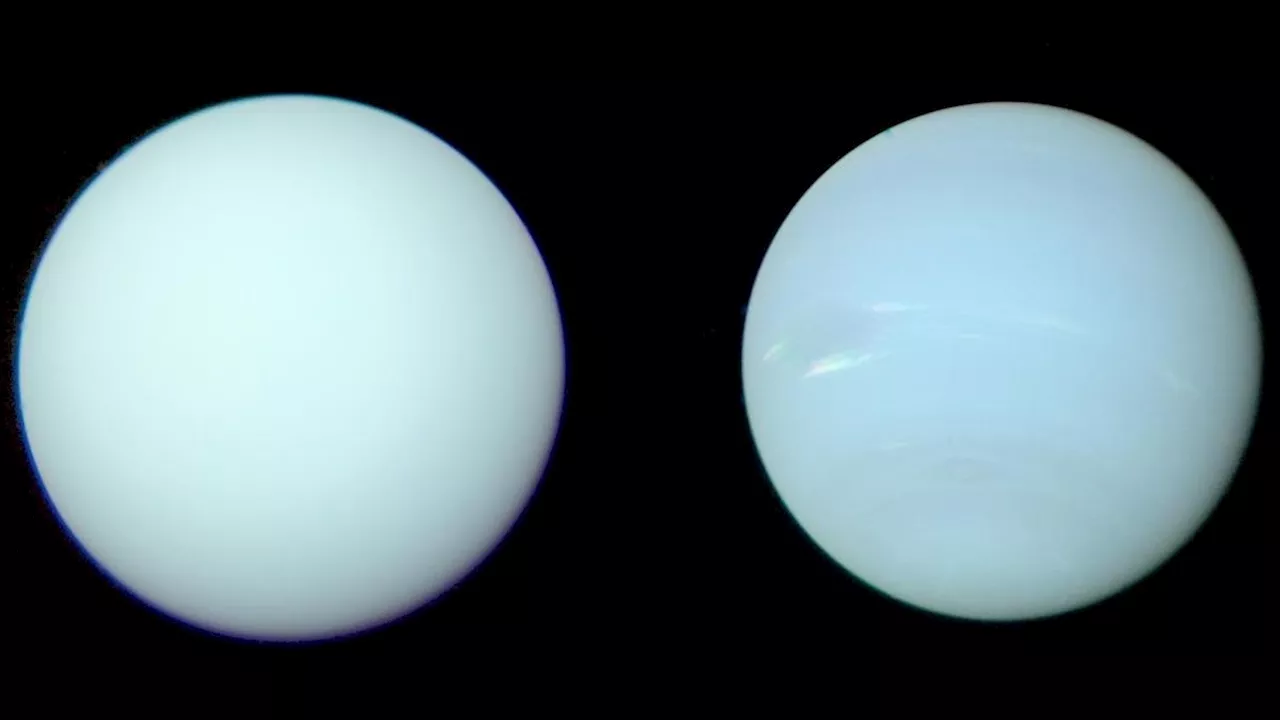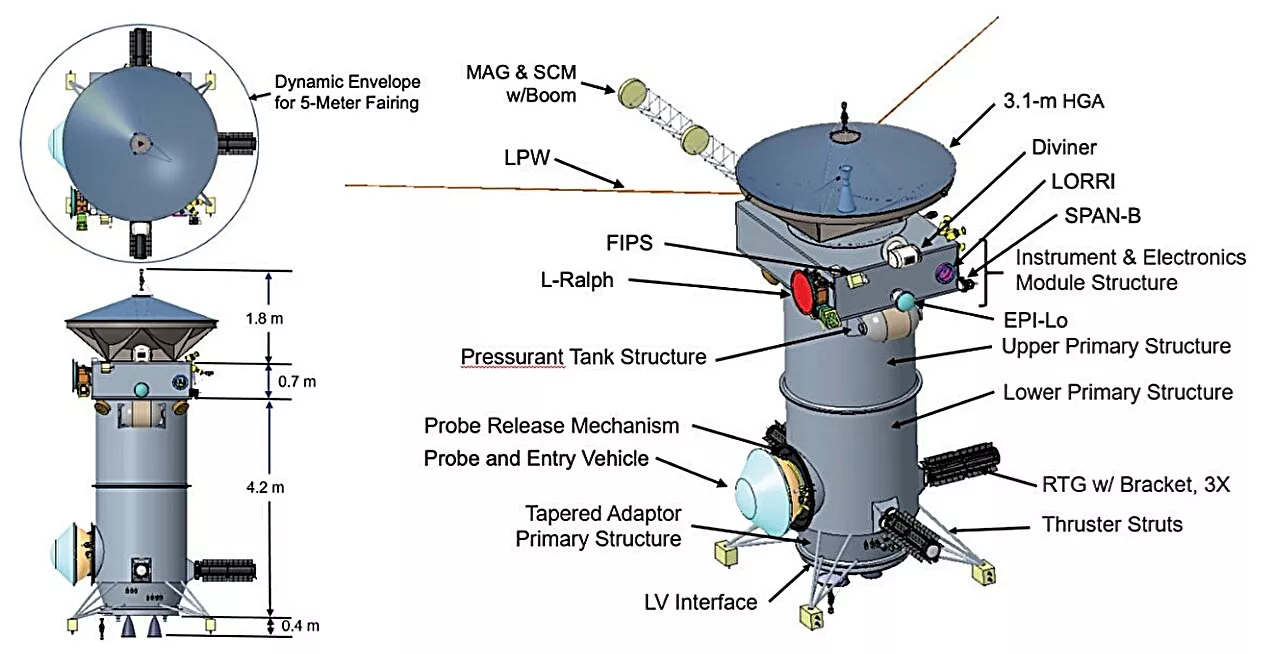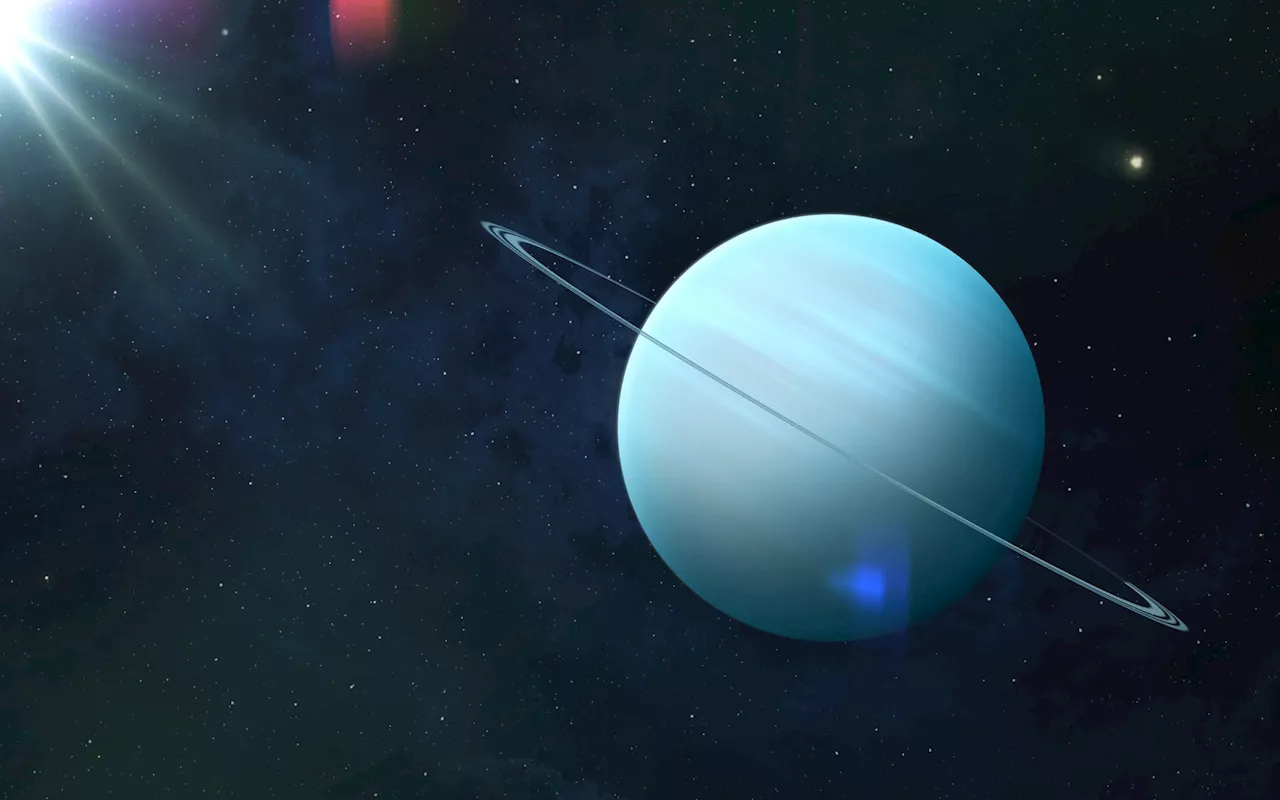Voyager 2's fly-by of Uranus in 1986 detected that its radiation belt was weaker than expected.
Uranus's mysteriously asymmetrical and skewed magnetic field has long confounded astronomers—until now.When the Voyager 2 spacecraft zipped past Uranus in 1986, it noticed that the huge gas giant's magnetic field was tilted 60 degrees away from the axis of its spin, resulting in the field being asymmetrical in strength.
We suggest that this could be explained by the unique magnetic field structure causing variations in the speed at which particles drift around the planet,' the researchers wrote in the paper.Using the Boris algorithm, which is often used to simulate how particles move in a magnetic field, the researchers modeled how Uranus's asymmetrical field would affect its radiation belt.
United Kingdom Latest News, United Kingdom Headlines
Similar News:You can also read news stories similar to this one that we have collected from other news sources.
 Weird magnetic fields of Uranus and Neptune may come from strange space chemistryA chemist turned science writer, Victoria Corless completed her Ph.D. in organic synthesis at the University of Toronto and, ever the cliché, realized lab work was not something she wanted to do for the rest of her days.
Weird magnetic fields of Uranus and Neptune may come from strange space chemistryA chemist turned science writer, Victoria Corless completed her Ph.D. in organic synthesis at the University of Toronto and, ever the cliché, realized lab work was not something she wanted to do for the rest of her days.
Read more »
 Astrophysicists Unleash Planetary Power To Probe the Universe’s Deepest MysteriesScience, Space and Technology News 2024
Astrophysicists Unleash Planetary Power To Probe the Universe’s Deepest MysteriesScience, Space and Technology News 2024
Read more »
 A mission to Uranus could also be a gravitational wave detectorDespite being extraordinarily difficult to detect for the first time, gravitational waves can be found using plenty of different techniques. The now-famous first detection at LIGO in 2015 was just one of the various ways scientists had been looking.
A mission to Uranus could also be a gravitational wave detectorDespite being extraordinarily difficult to detect for the first time, gravitational waves can be found using plenty of different techniques. The now-famous first detection at LIGO in 2015 was just one of the various ways scientists had been looking.
Read more »
 A Mission to Uranus Could Also be a Gravitational Wave DetectorSpace and astronomy news
A Mission to Uranus Could Also be a Gravitational Wave DetectorSpace and astronomy news
Read more »
 Studying the mystery of Uranus's curiously weak radiation beltsWhen the Voyager 2 spacecraft visited Uranus almost 50 years ago, it discovered a magnetic mystery. Unlike on most planets, the ice giant's magnetic field is tilted roughly 60° away from its spin axis, creating an asymmetric magnetic field that varies in strength.
Studying the mystery of Uranus's curiously weak radiation beltsWhen the Voyager 2 spacecraft visited Uranus almost 50 years ago, it discovered a magnetic mystery. Unlike on most planets, the ice giant's magnetic field is tilted roughly 60° away from its spin axis, creating an asymmetric magnetic field that varies in strength.
Read more »
 May 2024 was Earth’s warmest May on recordThe globe saw its 12th-consecutive month of record warmth
May 2024 was Earth’s warmest May on recordThe globe saw its 12th-consecutive month of record warmth
Read more »
